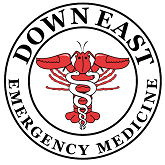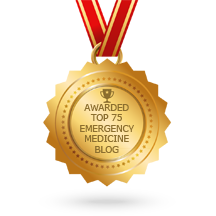So You Diagnosed Your Pediatric Patient With A Concussion… What Do You Tell The Parents Now?
/BACKGROUND
Decades ago concussions were not taken seriously enough. Athletes were often returned to play while still symptomatic from their injuries, even during the same competition in which they were injured. Four scientific discoveries lead to the medical community and society as a whole to take concussion more seriously:
Concussions were found to have a cumulative effect.
Athletes with previous concussions were found to be at risk for subsequent injuries.
Second impact syndrome was described, a condition in which an additional injury, often a mild one, sustained prior to complete recovery for concussion can result in cerebral edema and often death. (Fortunately this is rare, but it is a strong reason for not returning athletes to play while symptomatic).
A condition known as chronic traumatic encephalopathy (CTE) was described in a former American football player.
THE OLD RECOMMENDATIONS FOR ATHLETES
“ATHLETES WHO SUFFER A CONCUSSION MUST AVOID CONTACT SPORTS, COLLISION SPORTS, OR OTHER ACTIVITIES WITH INCREASED RISK OF TRAUMA TO THE HEAD UNTIL ALL SYMPTOMS HAVE RESOLVED AND THEY ARE CLEARED BY A CLINICIAN TO RETURN TO FULL ACTIVITY.”
More recently, athletes who sustained a concussion were recommended to avoid exercise and vigorous cognitive activity until their symptoms resolved entirely. While this was good advice for most athletes (who recover quite quickly) it turns out that the lack of activity and the social isolation involved with these restrictions resulted in symptoms of its own. Those symptoms often mimicked those of the concussion making it difficult to determine recovery and likely leading to some athletes being diagnosed with “prolonged symptoms of concussion” erroneously.
THE NEW RECOMMENDATIONS FOR ATHLETES
Several studies over the last several years have led to a change in the recommendations such that we now recommend physical and cognitive rest for 24-48 hours after injury. After that time, a gradual resumption of non-risk non-contact physical activity, usually starting with light aerobic activity, is recommended. In addition, it is recommended that athletes get back to all cognitive activity, gradually as tolerated. Baseline measures of cognitive function, balance, vestibular ocular function, and symptoms may be used to help diagnose and monitor recovery from concussion.
WHEN CAN AN ATHLETE RETURN TO PLAY?
Most athletes who sustain a sport related concussion can return to their sports safely if managed appropriately. Much of the media attention paid to sport related concussion and chronic traumatic encephalopathy is hyperbolic and at times patently false. Referring athletes to an outpatient provider who is knowledgeable in the assessment and management of sport related concussion will help guide them to decisions based on proper evidence.
In summary: Early diagnosis and comprehensive management are critical to the delivery of best practices for concussion care. Emergency physicians are usually the first physicians involved in diagnosis and treatment of this type of traumatic brain injury. Current recommendations are physical and cognitive rest for 24-48 hours after injury. After that time, a gradual resumption of cognitive activity and non-risk non-contact physical activity, usually starting with light aerobic activity, is recommended. Patients should have appropriate follow up with an outpatient provider who can monitor recovery from a concussion.
Tired of Reading?
Watch Dr. Meehan Discuss Post-Concussive Instructions for Pediatric Patients
Presented at the 2018 Maine Medical Center Winter Symposium in Sugarloaf, Maine
www.mmcwintersymposium.com
William P. Meehan III, MD
Director, Micheli Center for Sports Injury Prevention
Division of Sports Medicine, Boston Children's Hospital
References
1. McCrory P, Meeuwisse W, Dvořák J, et al. Consensus statement on concussion in sport-the 5th international conference on concussion in sport held in Berlin, October 2016. Br J Sports Med. 2017 Jun;51(11):838-847.[Pdf]
2. Marar M1, McIlvain NM, Fields SK, Comstock RD. Epidemiology of concussions among United States high school athletes in 20 sports. Am J Sports Med. 2012 Apr;40(4):747-55.[Pdf]
3. Meehan WP, et al. Chronic Traumatic Encephalopathy and Athletes. Neurology 2015;85(17):1504-11.[Pubmed]
4. Carson A. Concussion, dementia and CTE: are we getting it very wrong? J Neurol Neurosurg Psychiatry. 2017 Jun;88(6):462-464. doi: 10.1136/jnnp-2016-315510. Epub 2017 Apr 10.[Pubmed]
5. Kids, Sports, and Concussion: A guide for coaches and parents, 2nd edition. By William P. Meehan III. Prager Publishers. ©2018
6. Centers for Disease Control and Prevention Guideline on the Diagnosis and Management of Mild Traumatic Brain Injury Among Children.
7. Rivara RP et al. Consensus Statement on Sports-Related Concussions in Youth Sports Using a Modified Delphi Approach. JAMA Peditr. Published online November 11, 2019.
Written by William P. Meehan, MD
Edited and Posted by Jeffrey A. Holmes, MD












